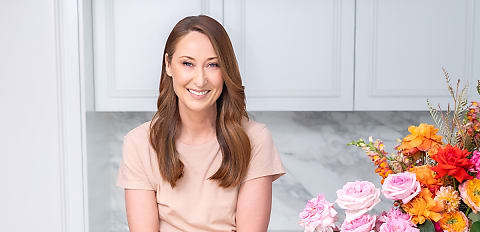What you may not realise is that if you focus solely on paying down the mortgage on your own home and ignore other avenues of generating wealth such as investing, you’ll have less choice than you think. That’s because unless you’re willing to downsize or bring in a border – that home isn’t going to generate an income. It’s about understanding your home is an asset. Not an investment.
And why I want you to consider paying more off your mortgage and investing. Don’t believe me? Or maybe you figure that once the mortgage is gone, you’ll start investing then? Let me help explain why it’s better to start now with a case study. Let’s assume with this example that two couples each bought a house for $950,000 and both have a mortgage of $760,000.
Couple One: Want to be mortgage free in 20 years
Couple One decided what was important to them was to be mortgage free in 20 years rather than 30, so they pay an extra $888 per month onto their mortgage. The result? In 20 years, they’re mortgage free! At which point they start investing.
They put the entire amount they were paying onto the mortgage, including the extra $888 into an investment with an 8 per cent return for three years and four months, at which point they now have no mortgage and their investment is worth $248,660.
Amazing, right? Before you start cheering, let’s look at Couple Two who took a different approach.
Couple Two: Want to be mortgage free early but also want to invest
Couple Two decided they want to have the safety net of paying more onto their mortgage, but they also understand that they can’t eat their house. So they also choose to invest so they have options.
They decided that instead of paying an extra $888 onto their mortgage each month like Couple One did, they would put $500 towards paying extra off the mortgage and invest the remaining $300 into an index fund earning an average of 8 per cent.
At the end of 20 years, when Couple One have paid off their home, Couple Two still have a mortgage of $179,406 which has three years and four months left to pay off. But they have an investment worth $228,540, which means they’re ahead of Couple One by $49,134.
But let’s keep the comparison going. In another three years and four months, Couple Two will have no mortgage and an investment worth $315,838.
This means, at the same point in time, Couple Two will have $67,178 more than Couple One. If we decided that both couples were going to stop contributing and let that investment simply grow for another 10 years the difference is amplified further.
Couple Two’s investment is now worth over $681,171 and is worth $145,033 more than Couple One’s total assets and investments. That’s thanks to the snowballing power of compound interest which means small amounts invested over time will beat putting in larger amounts over a shorter period of time.
So, why do we default to paying off our mortgage and then think about investing?
There’s so many reasons. We’re stressed by our debt, we think investing takes a lot of money, we don’t have time, we don’t have spare cash or we’re overwhelmed. All of those are myths. The truth is, share investing is the great equalizer.
You don’t need a lot of cash or to understand macro or micro economics. I get that it can seem daunting and you might even be scoffing that you don’t have the spare cash. Let alone $888 a month.
Let’s start with that last one first. If you’re self-selecting out of this because you don’t have spare cash (such as the $888 a month I used in this example), let me stop you there.
Head to Freebies under my website and you’ll find a free guide with 25+ ways to find $10,000 in 12 months (which is $833 in a month) as well as a case study with detailed tables of this case study. And while you’re there, check out my Investing in Shares Masterclass. In less time than watching a romcom, you can learn about your next steps.
Hopefully, I’ve caused you to stop and think differently about how you’re thinking about your mortgage and about investing. Because your home is an asset, not an investment. It’s time to create more choice.
Melissa Browne is an ex-financial adviser, author, and financial educator.
